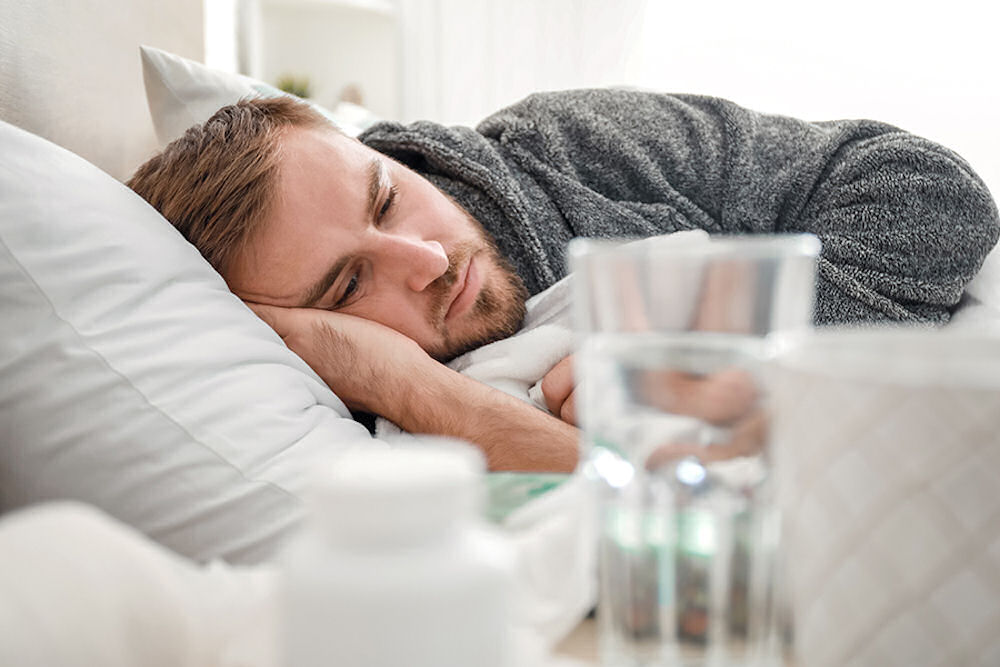At Lennox CMHC Inc., we understand that seeking help for substance abuse isn’t easy. Addiction affects every part of life, including health, relationships, work, and emotional well-being. It can also often co-exist with mental health challenges, such as anxiety disorders. When substance use and mental health conditions overlap, recovery definitely becomes even more complex — but it’s definitely not impossible.
Located in Van Nuys, CA, Lennox CMHC Inc offers compassionate, professional care tailored to your unique journey. We provide evidence-based outpatient treatment programs for substance use disorders in a safe and supportive environment. Whether you’re beginning your recovery journey or returning to it, our team is here to help you take the next step with confidence.
What is an Anxiety Disorder?
Anxiety disorders create ongoing feelings of worry, fear, or nervousness that interfere with daily life. Unlike normal stress, these feelings don’t go away and can make simple tasks feel overwhelming.
Common types of anxiety disorders include:
- Generalized anxiety disorder: A general and consistent feeling of worry, even if there seems to be no immediate cause.
- Panic disorder: Feelings of sudden and intense fear (or of feeling overwhelmed), sometimes resulting in an incapacitating panic attack.
- Social anxiety disorder: A consistent fear of being judged by others, or of constantly being judged. People with this condition may avoid social situations out of nervousness.
- Selective mutism: People with this condition feel unable to speak in certain situations out of anxiety.
- Phobias: A fear of something specific (whether rational or irrational) has an outsized, extreme effect on a person’s life.


How Anxiety and Addiction are Connected
Research shows that people often have anxiety disorders before they develop substance use problems. About 75% of people with both conditions experienced anxiety first. Anxiety and addiction are connected because people often use substances to temporarily relieve anxiety symptoms. This might mean drinking before social events, using marijuana to quiet racing thoughts, or taking pills to fall asleep.
However, while substances can provide short-term relief, they don’t address the underlying anxiety. This can create a cycle where substances can eventually increase a person’s anxiety levels, leading to more use and potential addiction. Substances can alter how the brain manages stress and fear. When substances wear off, anxiety symptoms can return stronger than before.Over time, the brain becomes dependent on substances to feel normal, making natural anxiety management more difficult.
Substances temporarily change brain chemistry in ways that reduce anxiety. These are a few signs that may suggest that substance use may be interfering with a person’s ability to manage their anxiety:
- Using substances specifically when feeling anxious or stressed
- Avoiding situations unless they have used substances first
- Finding it harder to cope with daily stress without substances
- Using increasing amounts of a substance (or substances) to achieve the same calming effect
Risk Factors for Anxiety and Substance Abuse
Several factors increase the likelihood of developing both anxiety and addiction. Understanding these risk factors helps explain why some people are more vulnerable to co-occurring disorders.
Genetics and family history play a significant role. Studies suggest that 30-50% of the risk for both anxiety disorders and substance use disorders comes from inherited genes. If a person’s close family members have anxiety disorders, depression disorders, or addiction, they are much more likely to develop those conditions as well.
Environmental triggers that can contribute to the onset of an anxiety disorder include trauma, chronic stress, and adverse childhood experiences. People who have experienced abuse, neglect, or other traumatic events are more likely to develop both conditions. Living in environments where substance use is common or normalized can increase a person’s risk for developing addiction.
Major life stressors can trigger both anxiety and substance use problems. These may include:
- Loss of a loved one or relationship changes
- Financial problems or job loss
- Moving or major life transitions
- Health problems or chronic pain
- Social isolation or lack of support


Signs of Co-Occurring Addiction and Anxiety Disorder
When someone has co-occurring anxiety and addiction, symptoms affect the body, emotions, and behavior.
Physical signs often appear first and may worsen over time without treatment. These include:
- Racing heart or chest tightness: Often occurs during anxiety episodes or withdrawal
- Sleep problems: Difficulty falling asleep, staying asleep, or getting restful sleep
- Muscle tension: Headaches, jaw clenching, or overall body tension
- Digestive issues: Nausea, stomach pain, or changes in appetite
- Fatigue: Feeling exhausted even after rest
Emotional and mental symptoms involve persistent worry that feels impossible to control. Mood swings, irritability, and difficulty concentrating are common. Some people experience feelings of hopelessness or thoughts of self-harm.
Behavioral changes that others might notice may improve:
- Withdrawing from friends, family, or activities once enjoyed
- Using larger amounts of substances over time
- Missing work, school, or important responsibilities
- Using substances in risky situations
- Avoiding places or situations that trigger anxiety
- Lying about substance use or hiding it from others
Without treatment, these symptoms can worsen over time. This can lead to serious health complications, relationship problems, and financial difficulties, all of which can lead to increased anxiety.
Evidence-Based Treatment Approaches for Anxiety and Substance Use
Many treatment options used to treat addiction can also provide benefits for people with anxiety disorders. A health professional can help to construct an individualized treatment plan that can help address both concerns.
- Thought challenging: Learning to question anxious or substance-focused thoughts
- Coping skills: Developing healthy ways to manage stress and anxiety
- Relapse prevention: Identifying high-risk situations and planning responses
- Gradual exposure: Slowly facing feared situations without substances
Some people benefit from medications that help manage anxiety without creating dependence. Non-addictive options like certain antidepressants can reduce anxiety symptoms while supporting recovery from substance use.
At Lennox CMHC, we offer different levels of care:
- Intensive Outpatient Programs (IOP): Multiple therapy sessions per week for people needing more support
- Standard Outpatient Programs: Weekly or bi-weekly sessions for ongoing maintenance
- Dual diagnosis treatment: Specialized care that addresses both anxiety and addiction simultaneously
Each of these programs combine individual therapy, group sessions, and family involvement to create comprehensive support for recovery. At Lennox CMHC, our staff can help verify insurance coverage and explain benefits to help in choosing the best program for a person’s lifestyle.


FAQs About Anxiety and Drug Abuse
Treatment length varies depending on individual circumstances, symptom severity, and personal progress. Many people participate in intensive treatment for several months, followed by ongoing support as needed. But again, this is highly variable.
Yes. Treating both conditions simultaneously through integrated care is considered the most effective approach for healing from addiction. This prevents one untreated condition from triggering problems with the other (and can help the individual learn how each condition informs the other for them personally).
Most insurance plans cover treatment for co-occurring mental health and substance use disorders, due to mental health parity laws. Coverage details can be verified before treatment with your insurance provider.
Leaving anxiety untreated can significantly increase the risk of relapse, as experiencing anxiety symptoms may trigger renewed substance use. Comprehensive treatment addressing both conditions can provide a solid foundation for long-term recovery.
Start Your Recovery Journey at Lennox CMHC
If you’re struggling with both anxiety and addiction in or around Van Nuys, support is available. At Lennox CMHC, we provide specialized care for people facing both challenges simultaneously. Our evidence-based treatment programs are designed to help you build lasting recovery while managing anxiety in healthy ways.
Contact us today to learn more about our dual diagnosis services and how we can support your journey toward healing.

